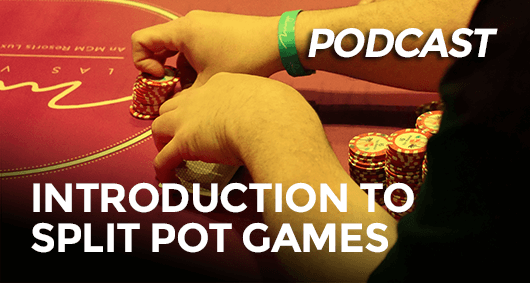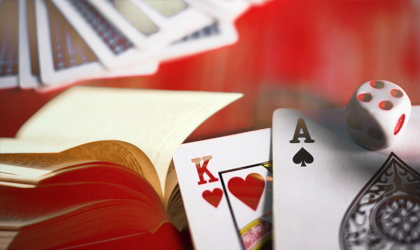Poker Split Pot Odd Chip
Pot Odds Poker Calculator. If you are new to pot odds, I suggest watching this quick pot odds poker video to get up to speed. It’s only 5 minutes long and will get you up to speed. If you are comfortable with the concept, you can use this calculator to show the ratio and equity requirement when you are facing a bet.
- Dec 11, 2018 Example of Split Pot used in a sentence - In the split pot Stud game Chicago, a high spade in the hole wins half the pot. How to Use Split Pot as Part of Your Poker Strategy. Novice split pot players generally try and compete for one half of the pot. They will either try to make the best low hand or the best high hand. However, the real.
- The odd chip between tied high hands is awarded as in a high game of that poker form, and the odd chip between tied low hands is awarded as in a low game of that poker form. If two players have identical hands, the pot will be split as evenly as possible. All side pots and the main pot will be split as separate pots, not mixed together.
- In poker when an odd pot is split how is it determined who gets the extra chip? Left of the button gets the odd chip. In a Hi-Lo split game the extra chip goes to.
The rules of poker cover a wide range of unusual situations, including some that even experienced poker players may not have encountered or paid much attention to before.

Here are five poker rules from a variety of different poker games that not everyone may know about, even though in some cases they should.
1. Do You Have to Bet the Nuts on the River?
Those who watch a lot of televised tournament poker might be aware of this rule, as will most experienced tournament players. However even those who play a lot might not have personally faced this particular situation and so might not be aware of the rule requiring you to bet when holding the best possible hand when last to act on the final betting round.
Poker Split Pot Odd Chip Recipe
The rule is enforced in tournaments at the World Series of Poker and elsewhere (though not everywhere). To give an example, a player holds and watches as an opponent checks the river with the board showing . The player checks back and shows down the ace-high flush — an unbeatable hand on that board. That player would then incur a penalty and be made to sit out a hand or more (at the tournament director's discretion).
The reason for the rule is to prevent collusion or 'soft play' between players, although in most cases a player checking back the nuts often does so without realizing he or she has an unbeatable hand. In the above example, for instance, the player might have missed the backdoor flush having arrived and simply checked back only thinking about the vulnerable-seeming flopped pair of nines.
The rule is generally only part of tournament poker, where any form of soft play (intentional or otherwise) affects all players, even those not in the hand.
Incidentally, the rule also applies when a player fails to raise with the nuts when facing a bet. Just calling isn't allowed, as that, too, could be interpreted as a kind of soft play. Meanwhile a player holding the nuts who is acting first on the last betting round can of course check in the hopes of check-raising — the rule only applies to a player acting last.
2. Do Suit Rankings Ever Matter in Poker?

In nearly all poker games and situations, zero distinction is made between the four suits — spades, hearts, clubs, and diamonds — when it comes to hand value.
For example, if two players happen to make flushes in a game of seven-card stud using different suits, the suits are of no consequence. It's not as though 'spades beat hearts' or the like. Rather, whoever has the highest-ranking cards will have the better hand. Take a hand in which one player has () / / () and another one has () / / () — the one with the heart flush barely wins with A-K-T-9-3 versus A-Q-T-9-3.
However, if you don't play stud games a lot you may not realize that the suits do matter sometimes when it comes to determining which player must start the action in a hand by paying the 'bring-in.'
In seven-card stud, the player with the lowest-ranked card showing to start must pay the bring-in (a forced bet). However when two players tie for the lowest-ranked 'door card,' suits are used to break the tie. Suits are ranked as follows: spades (highest), hearts, diamonds, and clubs (lowest). Thus between two players showing a deuce, one the and another the , the one showing the pays the bring-in.
By the way, the same rule is used in seven-card stud hi-lo, in which the player with the lowest door card showing pays the bring-in. Meanwhile in razz the player with the highest door card showing pays the bring-in, which means in the case of a tie the higher suit loses — e.g., if one player shows and another , the latter one has to pay the bring-in since spades are ranked higher than hearts.
Actually, there's another situation where suits can matter in poker... keep reading...

3. It's a Split Pot... Who Gets the Odd Chip?
Split pots aren't that uncommon in poker, especially in 'split pot' games where half of the pot goes to the best high hand and half goes to the best low hand. What happens when the pot doesn't add up to an even number, though? Who gets the extra?
The situation only applies after a pot is split as evenly as possible down to the lowest denomination chip in play, but still isn't exactly even. For example, say in a tournament the lowest chip in play is the 25 and the total pot is 3,925 — the best the dealer can do is to make one stack 1,975 and the other 1,950.
The rule about the awarding of odd chips depends on what sort of game is being played. Both the WSOP and the Poker Tournament Directors Association follow the same guidelines on this one, so let's go through their identical explanations of how to hand the odd chip.

- In board games with two or more high or low hands, the odd chip goes to the first seat left of the button.
- In stud and razz, and if there are two or more high or low hands in stud hi-lo, the odd chip goes to the high card by suit in the best five-card hand.
- In hi-lo games, the odd chip goes to the winner of the high hand.
- In hi-lo games, if identical hands win both the high and the low, the pot will be split as evenly as possible.
As you can see, in that last (rare) situation there is no specific guideline covering who gets the odd chip when, say, two players both make wheels (5-4-3-2-A) to win the low hand with their 5-high straights also tying for the best high hands.

4. Who Shows First?
You've probably been there — you're in a multi-way no-limit hold'em hand, the action checks around on the river, then everyone hesitates, looking at each other and waiting for someone to show a hand.
Even experienced poker players are occasionally unsure who is supposed to show their cards first. Meanwhile most players are mindful of the fact that they shouldn't show hands unnecessarily, adding still further incentive to hestiate before flipping over one's hole cards.
But what's the rule?
If it checks around on the last betting round, then the showdown simply goes in the same order in which the players checked — that is, starting with the small blind, whoever was first to check would be the first to show a hand, with the action proceeding clockwise around the table from there. If a player in later position sees that he or she is beaten, that player can fold face down.
If there is betting on the last street, then the last player to take an 'aggressive action' — that is, betting or raising — is the one who must show a hand first at showdown. After that, the action (again) proceeds clockwise around the table, with the next player to the aggressor's left having to show next and so on.
So if Player A (acting first) leads with a bet on the river, Player B raises, and Player A calls, Player B would show first. If Player B just called that leading bet, then Player A would show first.
Poker Split Pot Odd Chip Hailstone
Read more about this rule in 'The Showdown: Rules, Procedures, and Etiquette.'
Poker Split Pot Odd Chip Casserole
5. What If We Run Out of Cards?
Finally, let's go back to stud games for another not-so-well-known rule about a how to handle an exceedingly rare situation.
Most stud games — in both live games and when playing poker online — are played eight-handed. If you think about it, in a game in which players are ultimately each dealt seven cards (like seven-card stud and razz), if all eight players somehow managed to stick around to the end, a 52-card deck wouldn't be adequate since players would need 56 cards to complete their hands. And that doesn't even take into account the burn cards (one per each round from fourth through seventh street)!
What does the dealer do if there aren't enough cards left in the deck to deal everyone seventh street?
If there are enough cards left in the deck plus the burn cards to provide each player a final card (dealt face down), the burn cards are collected and reshuffled with the remaining cards, and everyone gets a final card. If in that instance there aren't enough cards to allow the dealer to burn one before dealing seventh street, there will be no burn card.
Poker Split Pot Odd Chip Cookies
However, if there aren't enough total cards left (including the burn cards) to make it possible for everyone get a final card, a single card is dealt in the center of the table as a 'community card' that each remaining player can use when making a five-card poker hand.
It's a strange situation — a community card in a stud game — but it happens from time to time.
Poker Split Pot Odd Chip Bars
Sounds fairly simple, right? Well it really should be, but what happens if the chips cannot actually be evenly distributed among the winning players in the split pot? What if there is one or more chips left over? What happens to those? Who gets them? Well, you will find that it really does depend on where you are playing and what rules they have in place for such an event, as there are a few different things that could happen.
The first thing that some places do actually do, which is not the most common at all, is that if the winning players do not use both of the cards in their hand to make the winning hand, then the one holding the highest left over card will be given the extra chip or chips. If they do use the cards they are holding then this will not be a possibility, which moves us to other situations.
The next situation is that the left over chip or chips will simply go to the player in the split pot who is to the immediate left of the dealer, although some players do not see this as being fair, since that winning player did no more than the others in the split pot, so doesn't deserve the extra chips. Which brings us to the final scenario. Possibly the fairest and the most common way to deal with any left over chips from a split pot is for them to be carried over to the next hand as a kind of extra ante.
Anyway, why don't you head over to one of our tables now and start playing and see what happens when you find yourself in a split pot scenario. Can you figure out which one of the situations we use when there is an odd chip left over?